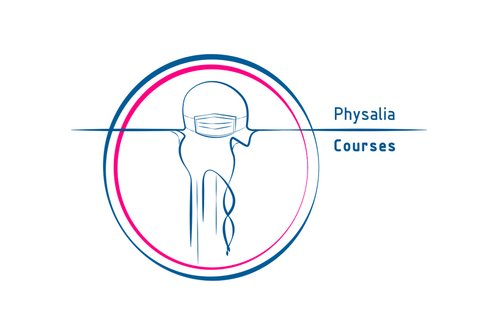Workshop: Single-cell RNA-seq analysis with R/Bioconductor ed. 2024
Overview:
This course will introduce biologists and bioinformaticians to the field of single-cell RNA sequencing. We will cover a range of software and analysis workflows that extend over the spectrum from the best practices in the filtering scRNA-seq data
to the downstream analysis of cell clusters and temporal ordering. This course will help the attendees gain accurate insights in pre-processing, analysis and interpretation of scRNA-seq data.
We will start by introducing general concepts about single-cell RNA-sequencing. From there, we will then continue to describe the main analysis steps to go from raw sequencing data to processed and usable data. We will present classical analysis workflows, their output and the possible paths to investigate for downstream analysis.
Throughout this workshop, we will put an emphasis on R/Bioconductor ecosystem and the different packages which will be used to analyse datasets and learn new approaches.
Format
The course is structured in modules over five days.
During the first 1/3 of the day, formal lectures will cover the key concepts required to understand the principles of scRNA-seq analysis (~2h).
Following these lectures, practical examples will be shown to illustrate how to translate the acquired knowledge into functional R code (~1h). At this stage, trainees will get acquainted with state-of-the-art packages for scRNAseq analysis as well as the best practices in bioinformatics.
During the second half of the day (3h), trainees will work by themselves, following guided exercises to improve their understanding of scRNAseq analysis workflow. Hints and solution are provided for each exercise. The exercises will mainly focus on specific concepts introducted earlier that day. However, analytical steps studied throughout the previous days will also be integrated so that towards the end of the week, trainees are fully able to perform fundamental scRNAseq analyses from beginning to end.
Office hours will take place during the last hour of the exercises. An instructor will be available to answer individual questions related to daily exercises. A Slack channel will also be available so that Q&A are available for everybody.
Learning outcomes
At the end of this course, you should be able to:
- Understand the pros/cons of different single-cell RNA-seq methods
- Process and QC of scRNA-seq data
- Normalize scRNA-seq data
- Correct for batch effects
- Visualise the data and applying dimensionality reduction
- Perform cell clustering and annotation
- Perform differential gene expression analysis
- Infer cell trajectory and pseudotime, and perform temporal differential expression
Instructor
Program
Day 1
- General introduction to single-cell RNA-seq experimental design (Lecture - 1h)
- scRNAseq: from raw sequencing files to count matrix (Lecture - 1h)
- From fastq to count matrix (Demonstration - 1h)
- Homework - From bcl to count matrix (Homework - 3h)
Day 2
- Filtering cells in droplet-based scRNAseq data (Lecture - 1h)
- Normalizing scRNAseq data (Lecture - 1h)
- R/Bioconductor essentials: GRanges and *Experiment classes (Bonus)
- Leveraging R/Bioconductor for single-cell analyses (Demonstration - 1h)
- scRNAseq analysis with R/Bioconductor (1/3) (Homework - 3h)
Day 3
- Clustering cells in scRNAseq (Lecture - 2h)
- Dimensional reduction visualization and clustering (Demonstration - 1h)
- scRNAseq analysis with R/Bioconductor (2/3) (Homework - 3h)
Day 4
- Cell type annotations (Lecture - 1h)
- Batch correction (Lecture - 1h)
- Annotation transfer with scmap (Demonstration - 1h)
- scRNAseq analysis with R/Bioconductor (3/3) (Homework - 3h)
Day 5
- Trajectory inference and RNA velocity (Lecture - 2h)
- Trajectory inference in multiciliated cells (Demonstration - 1h)
- Advanced scRNAseq topics: trajectory inference and RNA velocity (Homework - 3h)












